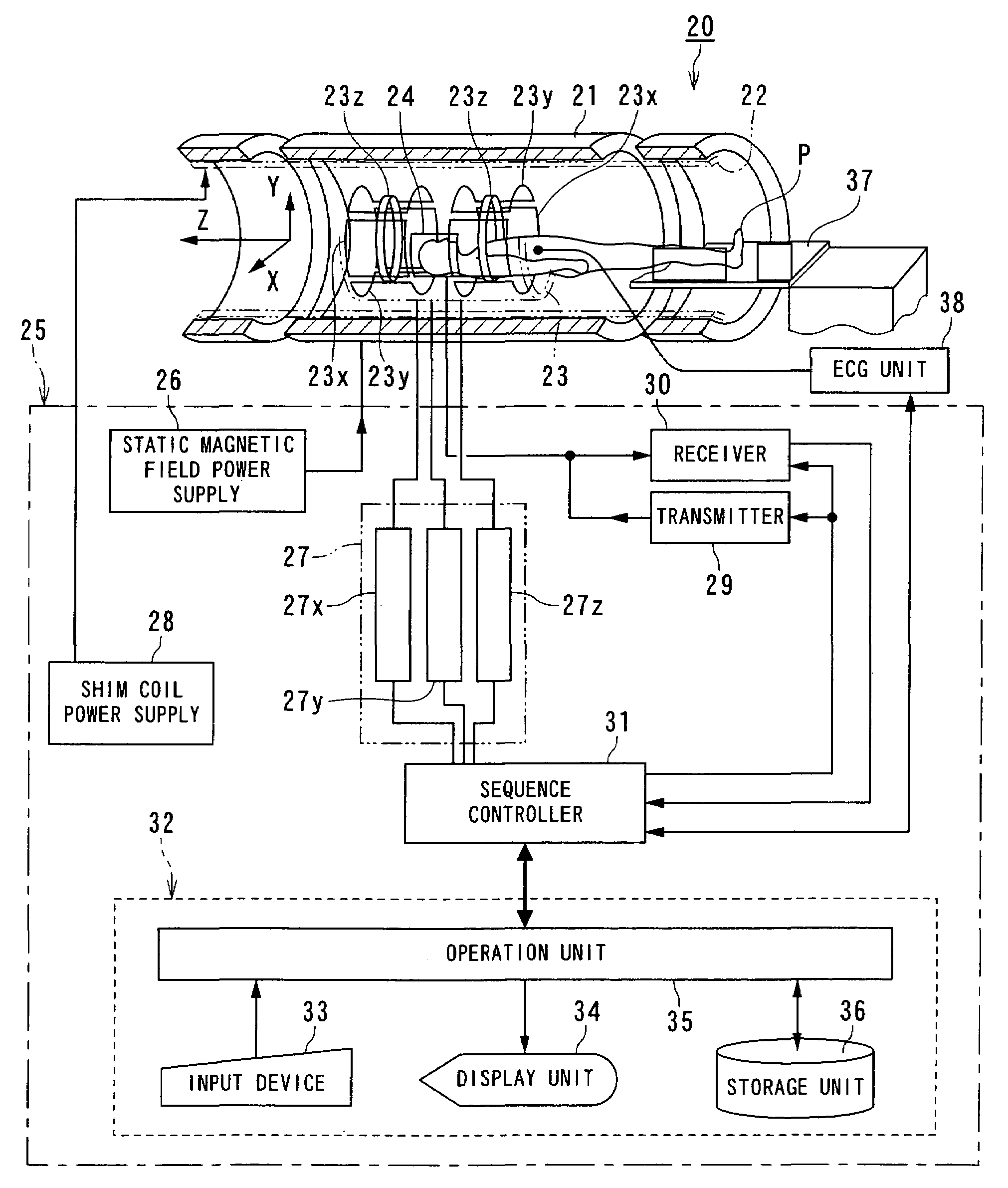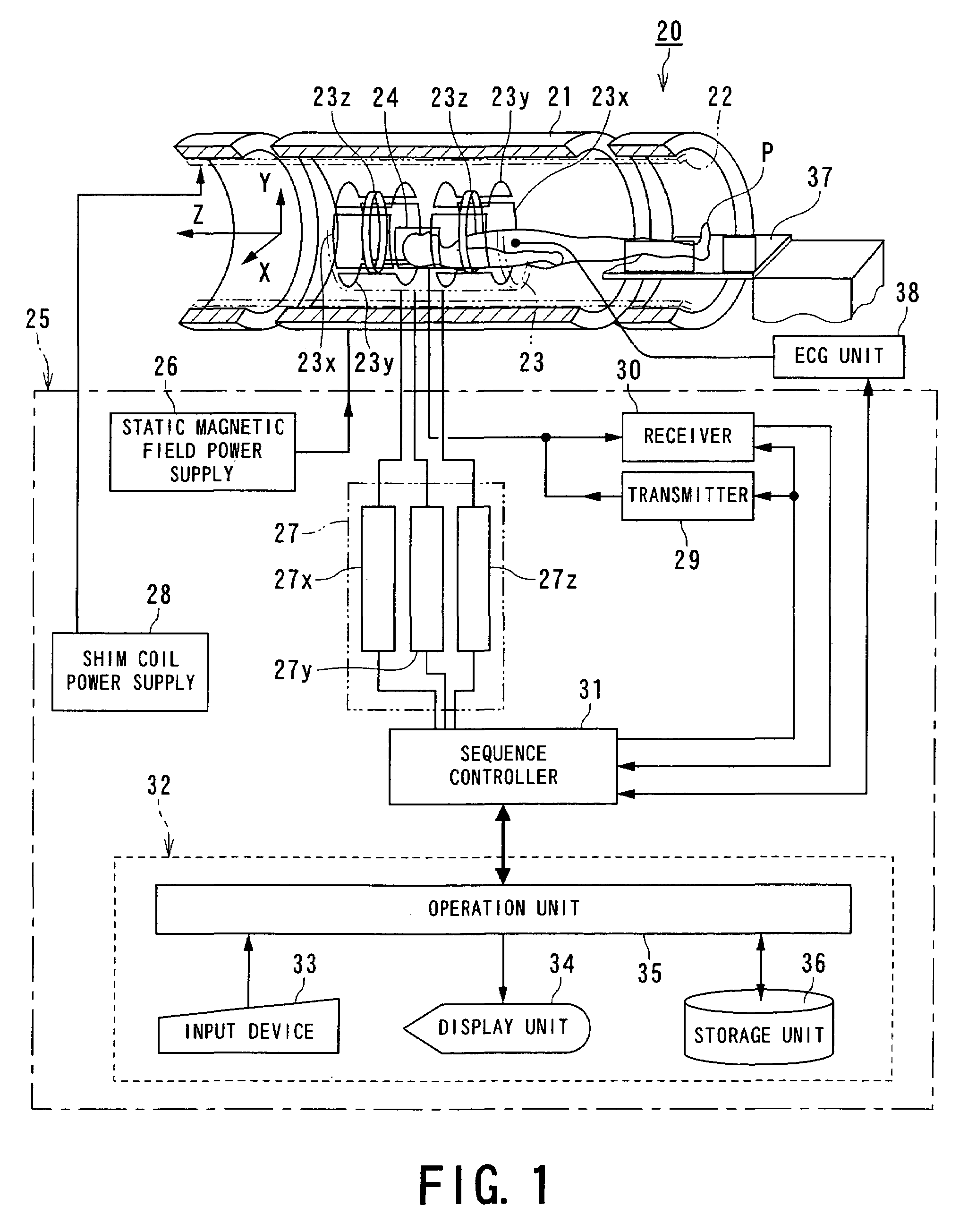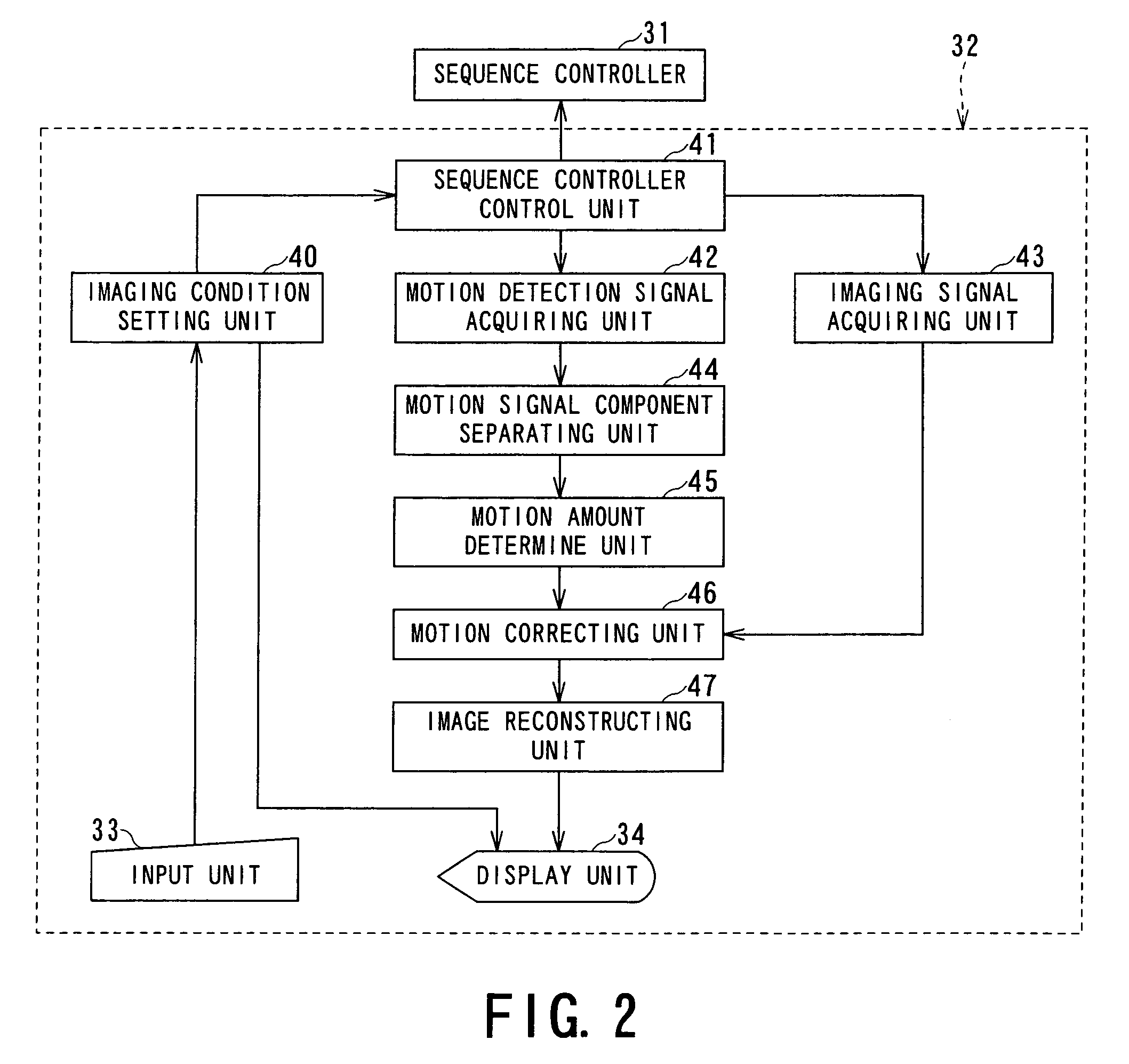Magnetic resonance imaging apparatus and magnetic resonance imaging method
a magnetic resonance imaging and magnetic resonance imaging technology, applied in the direction of magnetic measurements, instruments, measurement devices, etc., can solve the problems of insufficient accuracy of synchronous imaging methods using synchronous signals obtained by expansion and contraction sensors or pressure sensors, and limit the resolution, so as to reduce the influence of parts and reduce the influence of motion correction. , the effect of high accuracy of motion correction
- Summary
- Abstract
- Description
- Claims
- Application Information
AI Technical Summary
Benefits of technology
Problems solved by technology
Method used
Image
Examples
first embodiment
[0058]FIG. 1 is a block diagram showing a magnetic resonance imaging apparatus according to the present invention.
[0059]A magnetic resonance imaging apparatus 20 shown in FIG. 1 includes a static field magnet 21 for generating a static magnetic field, a shim coil 22 arranged inside the static field magnet 21 which is cylinder-shaped, a gradient coil unit 23 and a RF coil 24. The static field magnet 21, the shim coil 22, the gradient coil unit 23 and the RF coil 24 are built in a gantry (not shown).
[0060]The magnetic resonance imaging apparatus 20 also includes a control system 25. The control system 25 includes a static magnetic field power supply 26, a gradient power supply 27, a shim coil power supply 28, a transmitter 29, a receiver 30, a sequence controller 31 and a computer 32. The gradient power supply 27 of the control system 25 includes an X-axis gradient power supply 27x, a Y-axis gradient power supply 27y and a Z-axis gradient power supply 27z. The computer 32 includes an ...
PUM
 Login to View More
Login to View More Abstract
Description
Claims
Application Information
 Login to View More
Login to View More - R&D
- Intellectual Property
- Life Sciences
- Materials
- Tech Scout
- Unparalleled Data Quality
- Higher Quality Content
- 60% Fewer Hallucinations
Browse by: Latest US Patents, China's latest patents, Technical Efficacy Thesaurus, Application Domain, Technology Topic, Popular Technical Reports.
© 2025 PatSnap. All rights reserved.Legal|Privacy policy|Modern Slavery Act Transparency Statement|Sitemap|About US| Contact US: help@patsnap.com



